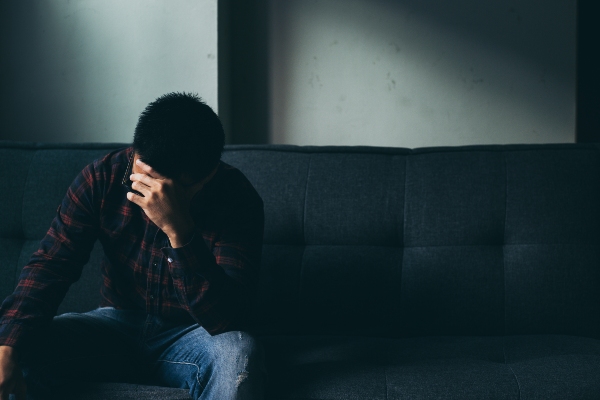 Depression treatment includes various medication and therapy options. Psychiatrists may prescribe medications such as mood stabilizers, antipsychotics, and anticonvulsants to treat depression. They may also recommend therapy, electroconvulsive therapy (ECT), or transcranial magnetic stimulation (TMS).
Depression treatment includes various medication and therapy options. Psychiatrists may prescribe medications such as mood stabilizers, antipsychotics, and anticonvulsants to treat depression. They may also recommend therapy, electroconvulsive therapy (ECT), or transcranial magnetic stimulation (TMS).
Antidepressant alternatives used for depression treatment
Let us take a look at some of the alternatives to antidepressants a psychiatrist might recommend:
1. Mood stabilizers
Depression is a mental illness that can devastate every aspect of a person's life. While many different treatment options are available, mood stabilizers are often prescribed for patients with depression or bipolar disorder.
In particular, mood stabilizers help treat patients who experience rapid mood swings or have difficulty regulating their emotions. While all drugs come with the risk of side effects, mood stabilizers are generally considered to be safe and well-tolerated.
2. Antipsychotics
Antipsychotics are a class of drugs typically used to treat psychosis, but they can also be effective in treating depression. In addition, research has shown that antipsychotics can help treat patients who have not responded well to other treatments, such as antidepressants.
While antipsychotics are generally considered safe, they can cause side effects, such as weight gain, drowsiness, and dry mouth.
3. Anticonvulsants
Anticonvulsants are a class of drugs typically used to treat seizure disorders, but they can also be effective in treating depression. Research suggests that anticonvulsants may be particularly helpful in treating patients with treatment-resistant depression.
As with any drug, there is the possibility of side effects, such as dizziness, drowsiness, and weight gain.
4. Electroconvulsive therapy (ECT)
ECT is a remedy for depression that involves passing an electric current through the brain to induce a seizure. ECT is effective in treating patients with severe depression who have not responded to other treatments.
While ECT is generally considered safe, it can cause side effects, such as confusion, disorientation, and headache.
5. Transcranial magnetic stimulation (TMS)
TMS is a treatment option for depression that uses magnetic fields to stimulate the brain. TMS has been found to be effective in treating patients with depression who have not responded to other treatments.
While TMS is generally considered safe, it can cause side effects, such as headaches and dizziness.
Depression is a major mental illness that requires treatment. If you are struggling with depression, talk to our psychiatrist about the best treatment options.
How long does it take for depression symptoms to improve?
Depression symptoms typically improve within a few weeks of starting treatment. However, it is essential to continue treatment even after symptoms have improved to prevent depression from returning.
If you are considering stopping treatment, talk to our psychiatrist about the best way to do so.
Abruptly discontinuing depression medication can cause withdrawal symptoms or make depression worse.
Get help for depression
Our psychiatrist can help you get past the symptoms of depression and restore your quality of life. Call or stop by our Houston clinic to set up an appointment.
Here's how to reach us...
Request an appointment or call Christies Family Health LLC at 832-915-1818 for an appointment in our Houston office.
Related Posts
Depression treatment aims to help restore your mental health, but not all cases of depression respond to typical antidepressant medications. Treatment-resistant depression is a significant condition that can be difficult to manage.Several treatment choices are available for people with treatment-resistant depression, including medication, psychotherapy, and brain stimulation therapies.Several types of medications can help treat depression,…
Depression affects approximately 19.4 million adults in the United States alone (according to the National Institute of Mental Health). This equates to nearly 8 percent of the U.S. adult population. Unfortunately, many cases of depression are left untreated. Therefore, a psychiatric assessment from a licensed psychiatrist is an integral first step to a depression diagnosis…
Depression is a mental health disorder that can cause sadness, apathy, mood swings, and a range of other symptoms. There is no known cure for depression. However, many patients see their symptoms diminish or can even eliminate them entirely with the right depression treatment plan.Depression treatment looks different for every patient. In most cases, treatment…







